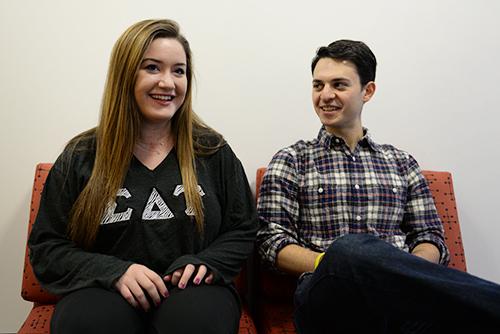As colleges across the country step up their responses to sexual assaults, two Greek life chapter at GW are trying to take the lead on campus.
Sigma Delta Tau sorority and Zeta Beta Tau fraternity will launch a “safe smart dating program” next month to teach chapter members about healthy relationships and combating sexual assault – an issue that has been tied to Greek life nationwide.

Laurence Bolotin, the executive director of Zeta Beta Tau’s national organization, said the training will allow members of the Greek community to protect themselves and support each other.
“With the alarming rate of sexual assault and abuse on college campuses we need to prepare our brothers to understand not only how to serve as allies to those in need, but also to be aware of warning signs where intervention may be needed,” Bolotin said.
Chapter leadership at Sigma Delta Tau and Zeta Beta Tau will partner with their national organizations and Jewish Women International to lead the one-day workshop, which will teach members about consent and address the pressing issue of sexual assaults on college campuses.
Other branches of the chapters paired up to hold a similar event at the University of Pennsylvania last fall, Bolotin said, and the idea is spreading. Chapters at Purdue and Indiana universities have planned workshops this spring.
Zeta Beta Tau president Daniel Egel-Weiss said the effort is important because it focuses on issues that affect all college students.
“It’s aimed at self growth and it’s something that we are really proud to be putting on,” Egel-Weis said, adding that the executive boards of both chapters will be trained to lead discussions.
Debbie Snyder, the executive director of Sigma Delta Tau, said she hopes the workshop will serve as a model for other Greek chapters.
“We would love for our chapter to share this information with other Greek organizations at GW and to take a stand to help prevent sexual abuse,” Snyder said.
Deborah Rosenbloom, vice president of programs at Jewish Women International, said the peer-to-peer format was crucial.
“It is key that students guide discussions with peers. That makes it much stronger,” Rosenbloom said.







